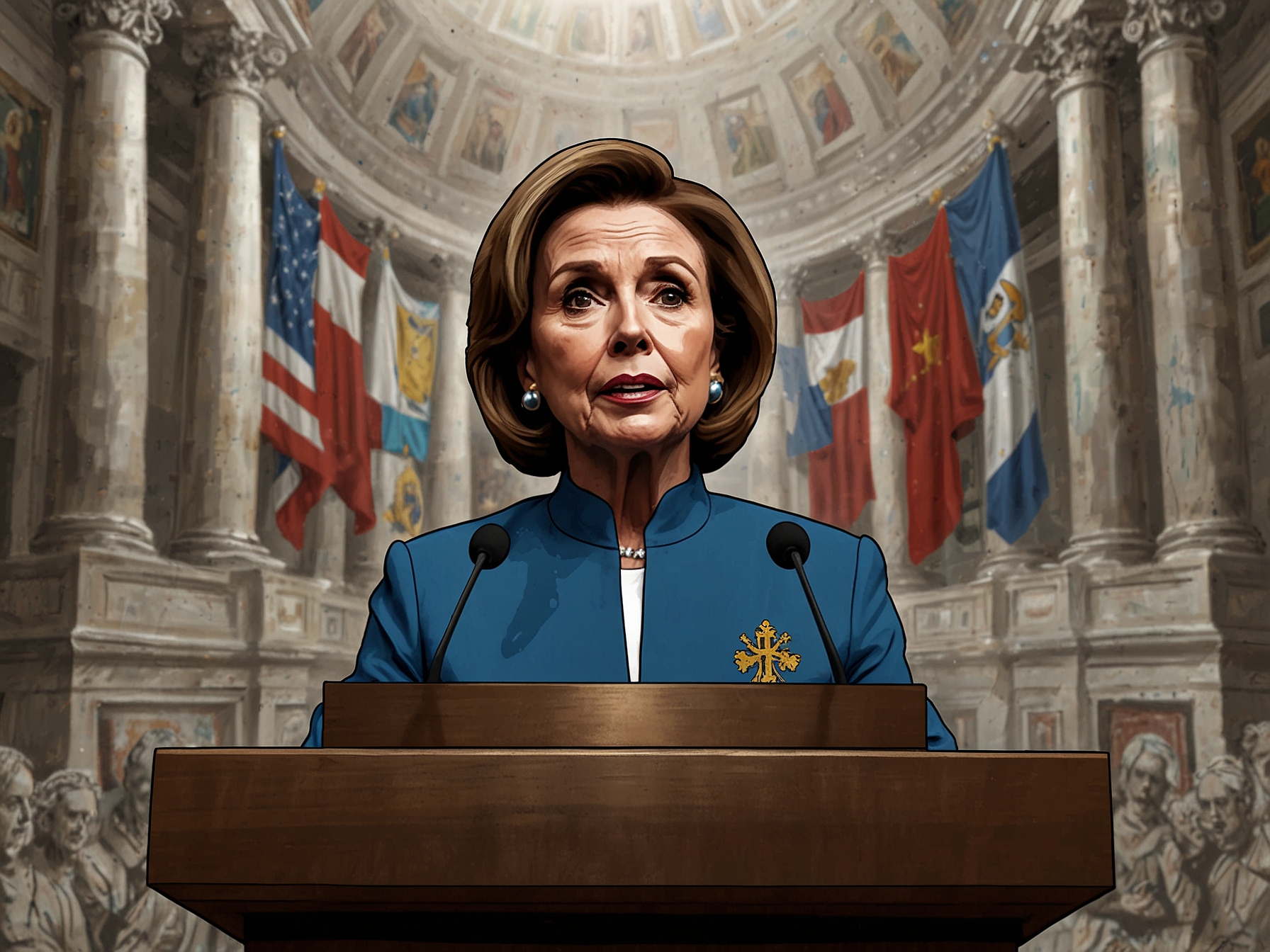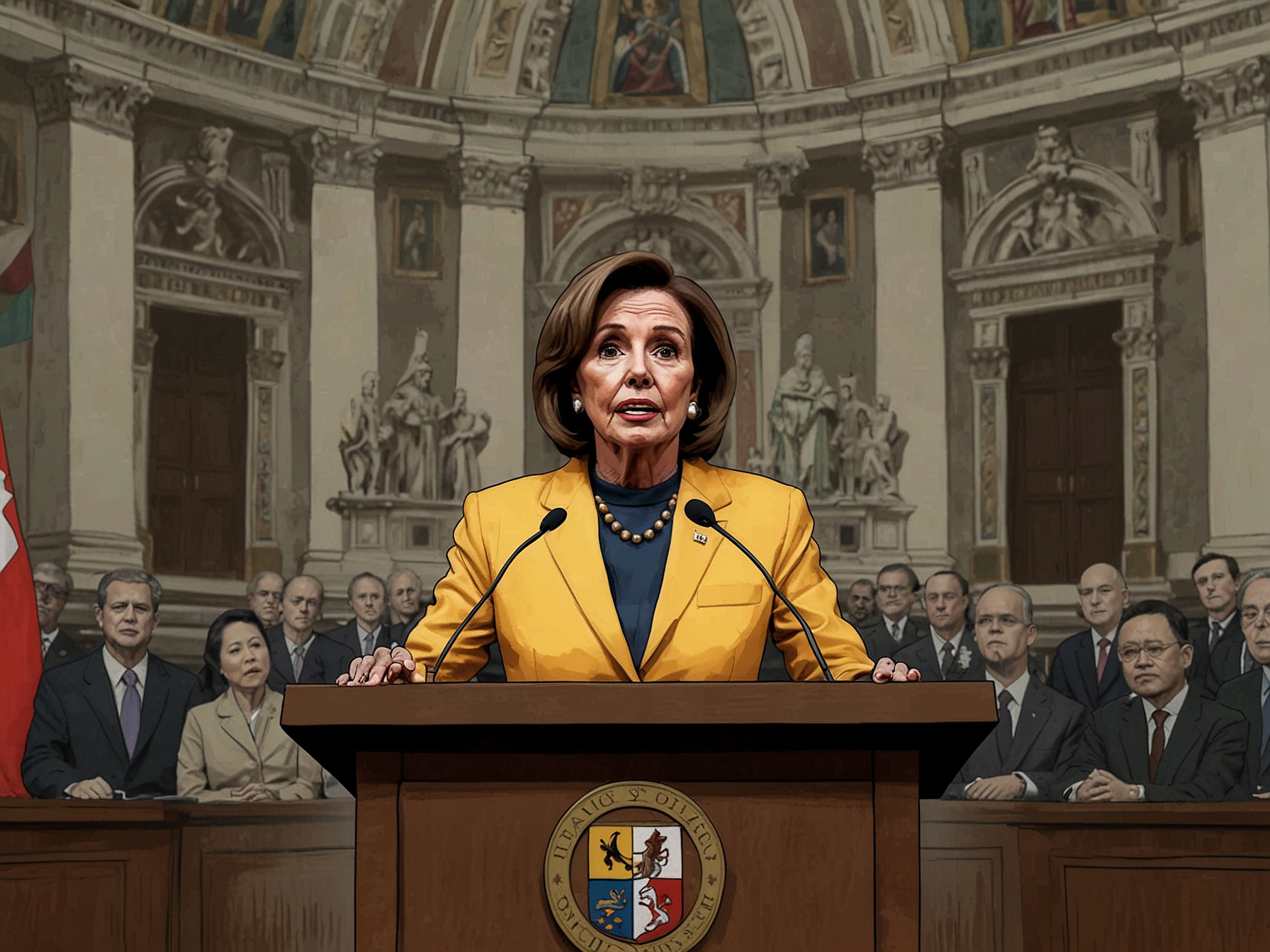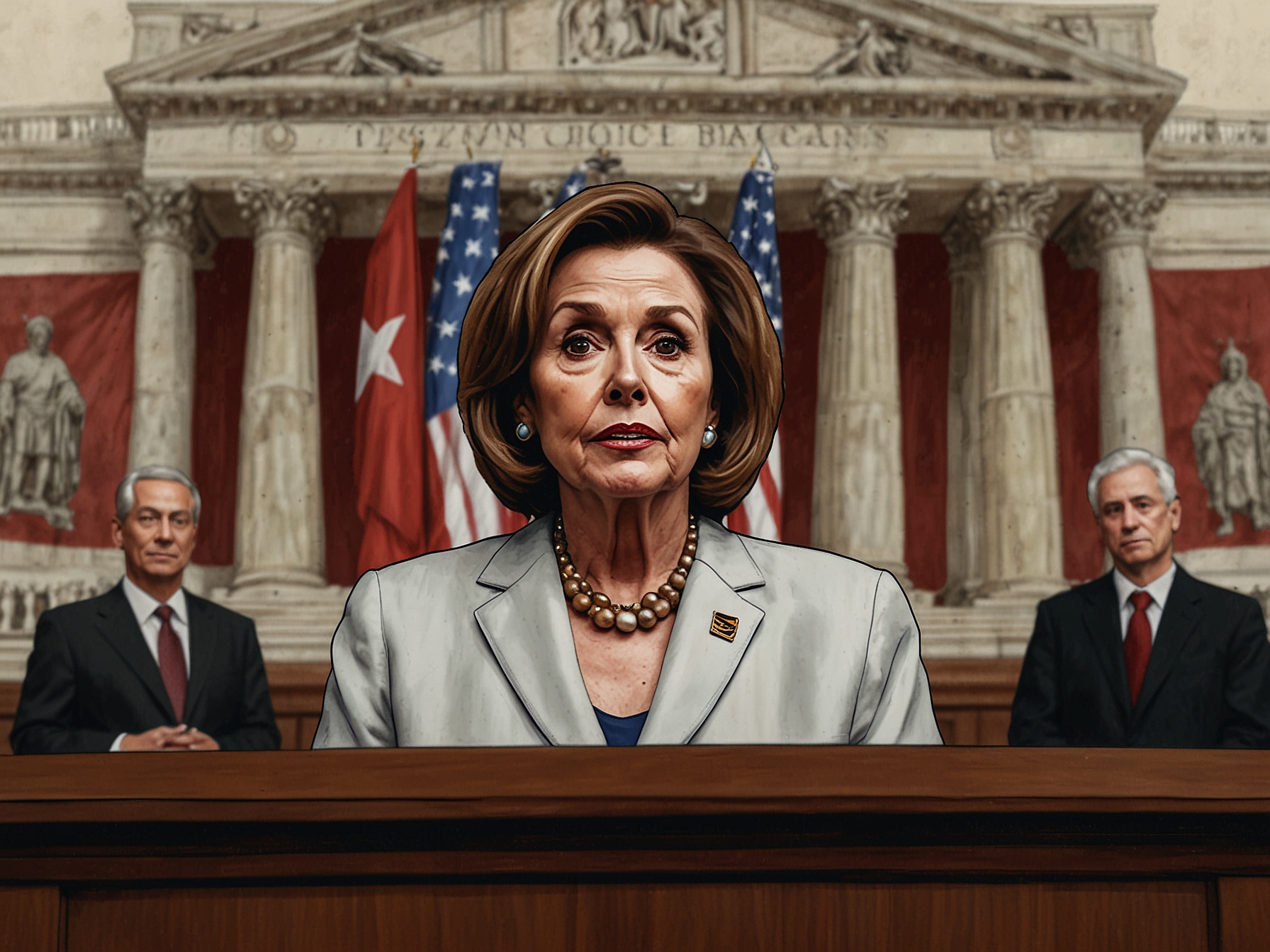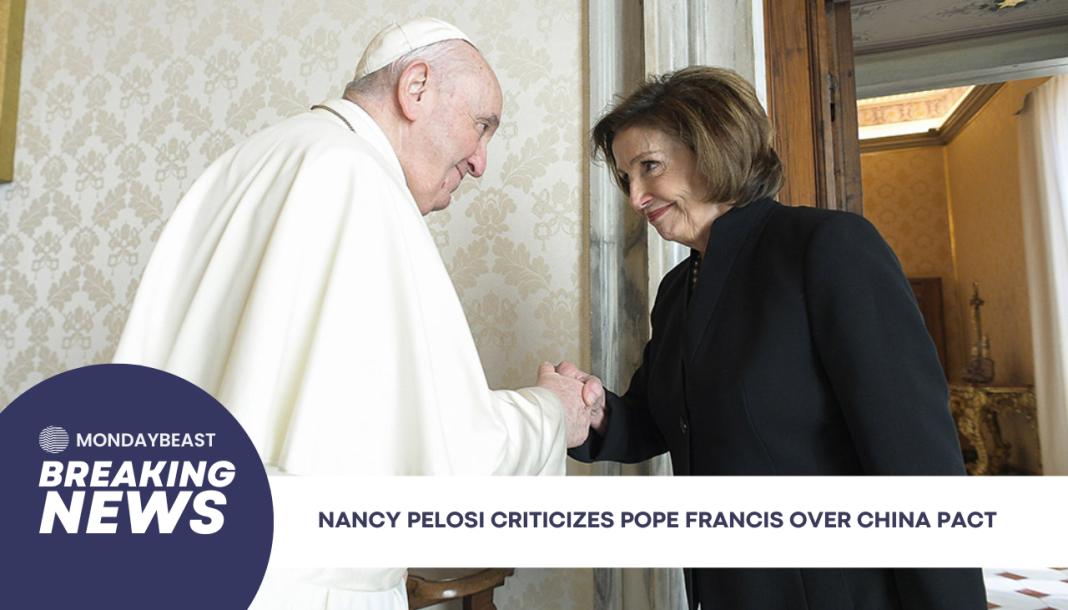Pelosi’s Discontent on Vatican-China Relations
In a recent interview, Nancy Pelosi voiced her displeasure over the Vatican’s renewed pact with China. The former Speaker believes the arrangement compromises the Church’s integrity. Critics echo her concerns.
How can the Church possibly allow the Chinese government to influence bishop appointments? Pelosi didn’t hold back her frustration. She questioned, “What have they achieved?” It seems the complexities of faith and politics are colliding once again.

For decades, Catholics in China have endured challenges. They’ve kept their faith alive, often worshiping in secrecy. Pelosi’s perspective reflects a deep connection to these struggles.
“We’ve seen suffering,” she noted. “I have a different view.” Her words underscore a chasm between progressive and traditional Catholic values. Should the Church yield to political pressures, or uphold its spiritual commitments?
An Evolving Democratic Landscape
During the same interview, Pelosi discussed the shifting dynamics within the Democratic Party. She openly backed younger members challenging traditional leadership. This marks a significant change.

In the past, she supported established leaders without question. Today, she seems to recognize the need for generational shifts. The landscape of Congress is changing, and so are strategies.
She praised these newcomers. “I respect that they’re ready to take charge,” she said. By empowering the younger crowd, Pelosi hints at a brighter future for the party.
But will this lead to success or further division? The political climate is certainly charged.
Decline of Catholic Voters

Pelosi also addressed the Democrats’ waning support among Catholic voters. This revelation hits close to home, as she seeks to reconnect with this demographic. What led to this disconnect?
In her view, many factors played a role, including low voter turnout. She remarked, “A lot of people didn’t vote. That may be why we have fewer Catholics voting that way.”
The shift may also relate to shifting societal values. Many Catholics feel disillusioned. They believe the Democratic Party strayed from core principles.
Pelosi’s heartfelt reflection reveals her concern. “It’s a sad thing,” she sighed, bringing attention to the urgency of this issue. How can Democrats reclaim this vital support?
Battling Bishops, Embracing Nuns
The tension between Pelosi and Catholic bishops is not new, particularly regarding healthcare. Speaking of her memoir, she shared memories of clashes during the Affordable Care Act negotiations. Bishops accused her of undermining core values.
She fought back, highlighting discrepancies in their claims. Why do some leaders distort the truth? In her eyes, nuns played a pivotal role in supporting healthcare reforms.
“The nuns were important — they knew the subject,” Pelosi stated. This contrast between the bishops’ stance and the nuns’ support raises questions. Who truly represents Catholic values?
Is it the conservative bishops or the compassionate nuns? Pelosi’s ongoing challenge with Cardinal Cordileone exemplifies the friction. The archbishop banned her from receiving Communion due to her pro-choice stance.
In an empowering moment, she stated, “I received Communion anyway.” Her convictions remain unshaken despite opposition. How does faith intersect with personal beliefs and political action?
Reflections on Faith and Politics
Central to Pelosi’s identity is her strong Catholic faith. She’s constantly navigating the delicate balance between personal belief and political realities. Her spirituality offers her strength, especially amidst controversies.
“I feel there’s an angel on my shoulder,” she shared, emphasizing a personal connection to faith. The divine spark in every individual matters deeply to her.
This conviction shapes her approach to politics and underscores her commitment to social justice. “We have responsibilities to other people,” she reflected, evoking compassion and kindness. But does the Church’s leadership share this vision?
The Vatican-China deal is a poignant topic. Pelosi expressed frustration, echoing sentiments from the underground church in China. Many face persecution for simply practicing their faith.
She referred to a significant moment in history when bishops faced persecution and even martyrdom. It raises pressing questions about moral leadership. Shouldn’t the Church advocate for those suffering?
Unwavering Principles Amidst Change
Even as the political landscape shifts, Pelosi remains steadfast in her principles. The former Speaker is unafraid to express her thoughts openly. Her heartfelt critiques of the Vatican’s agreement showcase the complexities of faith and politics in a modern world.
As Pelosi continues to champion for change, it’s evident that her journey is far from over. The intersections of these themes are precarious and delicate. But perhaps, through these challenges, deeper conversations will emerge.
Is there a path forward that honors both faith and political responsibility?




